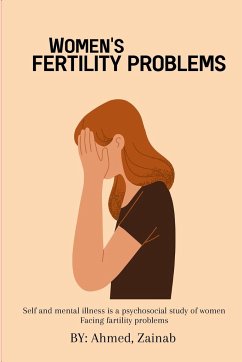In today¿s world, we have become more conscious about health and its related problems. This probably is due to the awareness generated about health problems as well as the relative ease and precision in diagnosing these problems with the progress in medical science. Infertility is a growing problem across virtually all cultures and societies almost all over the world. It is considered not only as a gynaecological illness, but also as a biopsychosocial health problem (Onat & Kizilkaya, 2012). There is sufficient lack of general awareness among the infertile individuals as well as among the health professionals about the psychological determinants and consequences of infertility. An understanding of the impact of infertility on the mental health can help to identify psychiatric morbidity among these individuals. An early psychological intervention for them may inturn improve their quality of life as well as chances of pregnancy. 1.1 Definition of Infertility: Infertility is "a disease of the reproductive system defined by the failure to achieve a clinical pregnancy after 12 months or more of regular unprotected sexual intercourse (and there is no other reason, such as breastfeeding or postpartum amenorrhoea (WHO, 2013). According to the estimation of the WHO (1994), infertility affects 50 to 80 million couples at some point in their reproductive lives. Infertility has a variety of biological and behavioural determinants as well as psychosocial consequences. Furthermore, the consequences can be especially devastating for women in pronatalist cultures such as those of India, and South Asia. Despite the magnitude of its impact, it is seen that in comparison to the developing world, infertility has been relatively neglected as both a health problem and a subject for social science research in South Asia,
Hinweis: Dieser Artikel kann nur an eine deutsche Lieferadresse ausgeliefert werden.
Hinweis: Dieser Artikel kann nur an eine deutsche Lieferadresse ausgeliefert werden.








